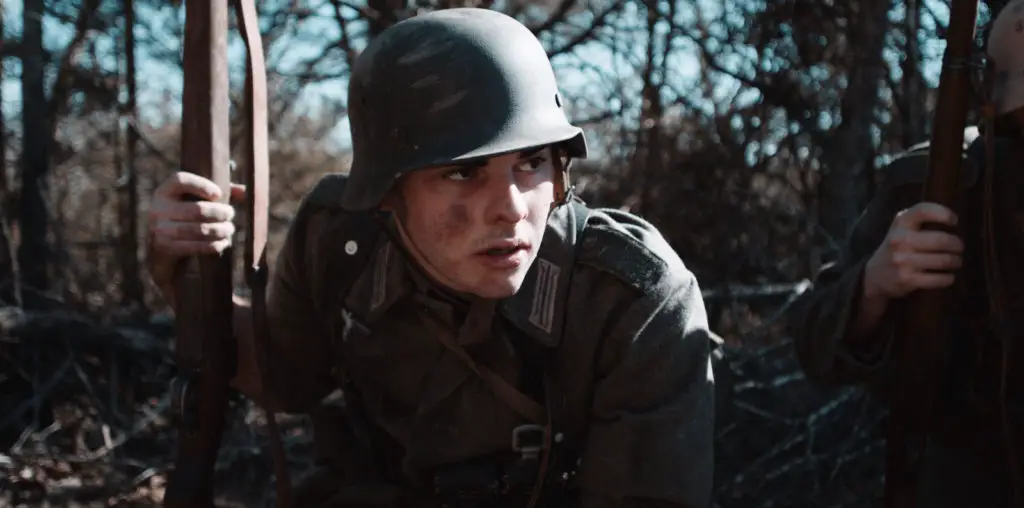
To most American moviegoers, especially those under 25, the world evoked in Bernardo Bertolucci’s latest may seem as fantastic as those in which Tim Burton’s or Peter Jackson’s most recent releases take place. How many young MTV fans have any idea that, in the spring of 1968, students in Paris started a revolution which threatened to topple the French government? Much less that they took to the streets in large part as a result of their passion for film.
That explosive moment in history provides the backdrop for “The Dreamers,” the story of Parisian twins who hook up with a young American at a demonstration against the administration’s removal of Henri Langlois from his position as director of the legendary Cinematheque Francais. Eva Green and Louis Garrel play the privileged offspring of a famous poet and his British wife. When the couple leaves for a seaside vacation, the siblings invite fellow cineaste Michael Pitt to vacate his one star hotel and stay with them in their labyrinthine apartment.
The turmoil outside its walls all but evaporates for the trio as brother and sister initiate their new playmate into their secret world. Early on, the story focuses on the love of motion pictures all three share. In some scenes Bertolucci cuts to images from seminal New Wave works like “Band of Outsiders” and “Breathless.” In others he choreographs the action of his own picture in such a way as to quote scenes from classics like “The Third Man” and Garbo’s “Queen Christina.” The first third of “The Dreamers” is drenched in movie consciousness in much the way “School of Rock” was suffused with music consciousness. Directors such as Godard, Ray and Truffaut, it suggests, weren’t merely entertainers but artists with the vision and power to change the world.
And then the real subject of Bertolucci’s film becomes apparent. While it recalls a juncture in the last century when art, politics and sex combined to exert unprecedented influence on society, the picture isn’t about what the world was up to. It’s about what a couple of screwed up kids were up to and why.
Isabelle and Theo welcome Matthew into their world by chanting over and over a line from Tod Browning’s “Freaks”, “We accept you, you are one of us.” At first the viewer takes this as just another sign of their obsession with the cinema, along with the movie trivia duels in which they routinely engage. The brother and sister are indeed freaks, though, as we learn when Theo loses such a contest and, as a penalty, his sister orders him to m********e before a photograph of Garbo as she and Matthew look on. Shortly thereafter, the American is stumped. His penance? Theo decrees Matthew must make love to his sister while he watches. To demonstrate his transcendence over bourgeois values, the brother casually fries eggs while the other two have sex on the kitchen floor and, afterward, runs his fingers between her thighs smearing them with blood.
Perhaps a pertinent question might be what are intelligent young people to rebel against when their parents are themselves enlightened antiestablishment figures. “A poem is a petition. A petition is a poem” reads one of the father’s most celebrated works. Surrounded by wealth, art and beauty, the twins have little to protest and the bar for misbehavior is set awfully high in the home of a mother and father so worldly.
Driven by the adolescent compulsion to reject values, brother and sister flirt narcissistically with a grab bag of taboos engaging in behavior which ranges from the mischievous to the incestuous. The twins have sealed themselves in a fantasy-reinforced universe, sleeping naked together, bathing together, using the bathroom together. In need of titillation, they bring in an outsider not so they’ll have company but so they’ll have someone to shock. For all their frontally nude NC-17 bluster, however, they are afraid of getting caught. “If my parents found out, I’d kill myself,” Isabelle confesses to Matthew early on. By the end of the film, it’s clear she wouldn’t think twice about taking the other two with her.
Gorgeously shot, cleverly directed, smartly scripted and convincingly performed, “The Dreamers” is itself something of a movie puzzle. Is it the great filmmaker’s valentine to a nobler time, a celebration of the power of cinema, a meditation on sexual liberation or a cautionary tale about the perils of living in a cocoon of fantasy? To varying degrees it is probably all of the above though, the more I think about it, the more it impresses me as primarily the story of two disturbed and dangerous people.
Theo reads Mao’s little red book and romanticizes his revolution. Isabelle is revealed to be a personal disappointment away from committing murder. In the end, they join the crowds which have filled the night streets though, it seems, not out of political conviction but simply to play another role, another game.
The last people you want carrying Molotov cocktails are the ones who think life is but a dream.
